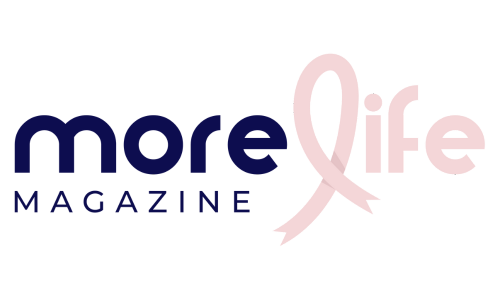Susan G. Komen takes a Stand for H.E.R.
"We already know the dire statistics of Black women dying from breast cancer, being diagnosed with more aggressive forms, at later stages and earlier ages. The question is, what are we going to do about it?" said Natasha Mmeje, Community Education and Outreach Director for Susan G. Komen.
In 2021, Susan G. Komen launched an initiative called Stand for H.E.R. – a Health Equity Revolution. The bold effort to decrease the gap in breast cancer mortality between Black and white women focused on 10 U.S. metropolitan areas where the gaps are the greatest: Atlanta, GA, Chicago, IL, Dallas-Fort Worth and Houston, TX, Los Angeles, CA, Memphis, TN, Philadelphia, PA, St. Louis, MO, Tidewater, VA, and Washington, DC.
Natasha sat down with More Life Magazine to share how the world's leading breast cancer organization is taking a 360-degree approach to advancing health equity.
A multifaceted approach
"The Stand for H.E.R. initiative is our commitment to collaborating with Black communities, policymakers, researchers, and other key stakeholders to create a world where inequities don't exist and where Black people have the same chance of surviving breast cancer as anybody else," Natasha explained.
For Komen, education is a starting point and the goal is to provide Black people with knowledge about breast health, screenings and self-breast awareness. Beyond education, Komen provides comprehensive patient support to ensure connection to timely high-quality care through the Komen Patient Care Center. Through its Patient Care Center, Komen connects people to local resources in their communities across the country. This support extends to a broad range of individuals affected by breast cancer, including newly diagnosed patients, people living with metastatic breast cancer, the undiagnosed, as well as co-survivors — people who are accompanying their loved ones through this journey.
Komen is also actively working on workforce development to improve the diversity and cultural sensitivity of healthcare workers, providing a think tank-inspired community where people can engage, learn, and support one another across the country." This program benefits not just patient navigators, but also community health workers and even medical providers who can benefit from being a part of that community.
Additionally, the organization is putting significant effort into ensuring research representation from the people conducting the research to those who participate in the studies. "We're just trying to make sure that research is representative and it benefits all people," Natasha explained.
Finally, advocacy for policy that specifically promotes health equity plays a key role in Komen's approach. "We've been doing this through a lot of policy work, both local, state and federal policies," said Natasha. She believes in the power of policy to create lasting change instead of change for the moment and cited the Access to Breast Cancer Diagnosis Act as an example of federal legislation Komen supports.
"We've been here and here's what we're doing."
Reflecting on Komen's history and commitment to equity, Natasha emphasized, "Although the Stand for H.E.R. initiative appears new, Komen has always been entrenched in health equity."
"We started with affiliates, but we are now one Komen," said Natasha. "And because we shifted the way that we do things a bit, I think it makes us stronger and we're able to better be nimble and serve communities better. But I think sometimes we have to go back and say, 'Hey, we've been here, but here's what we've been doing.' "
"Speak Truth to Power" and "Worship in Pink" are two significant programs by Susan G. Komen designed with the Black community in mind.
"Speak Truth to Power" is Komen's advocacy-based training program specific to the Black community. Through this initiative, individuals are taught how to use their voices, share their experiences, and engage with policymakers. These training sessions educate community members about current and proposed legislation related to breast cancer, thus empowering them to lobby for their rights and needs.
"Worship in Pink," originating from Atlanta, was started with the intent to reach Black women in their faith-based communities, which are often hubs of trust and information. Today, the program has expanded to include resources in Spanish. By providing these congregations with accurate knowledge about breast health, breast cancer, and screening through trained advocates, Komen aims to meet minority communities where they are.
"We cannot continue to do siloed work."
Natasha believes the complexity and persistence of health disparities demand innovative and unorthodox solutions. She sees Komen as a collaborator, working alongside other organizations, and stakeholders, learning from their successes, identifying gaps, and helping to fill them.
"The way we come into this work is very different than maybe how another organization may approach it," said Natasha. "But it’s about us working together, amplifying each other’s work, creating think tanks around, 'Hey, how are we addressing this together?' I really do firmly believe that's the only way we're gonna move the needle. We cannot continue to do siloed work.”
Natasha recognized the potential complexities, including sponsors and differing approaches, but her belief in collaboration remained undeterred. "The most intrinsic piece of us really wanting a world where breast cancer does not exist, we have to lock arms," she declared.
Natasha enthusiastically invites any organization that resonates with Komen’s mission to collaborate, asserting that these partnerships can potentially open up exciting avenues for impactful change.
To learn more about Susan G. Komen’s efforts to advance health equity and how you can get involved, visit komen.org.

